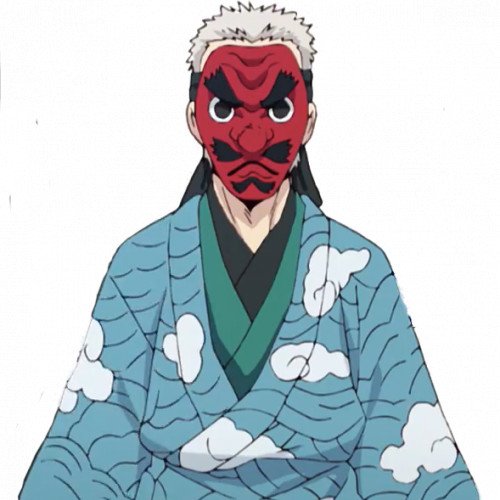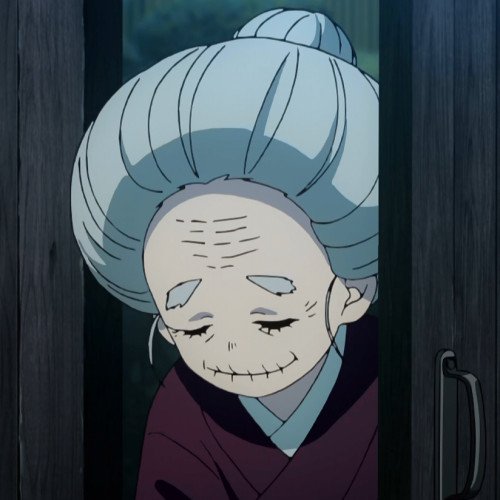Sakonji Urokodaki VS Hisa

Sakonji Urokodaki
Sakonji Urokodaki (鱗うろこ滝だき 左さ近こん次じ Urokodaki Sakonji?) is a retired member of the Demon Slayer Corps, having held the position of the previous Water Hashira (水みず柱ばしら Mizu Bashira?). He is the main cultivator of the Water Breathing, having trained Giyu Tomioka, Tanjiro Kamado, Sabito and Makomo. Sakonji's face has never once been revealed or depicted throughout the entire completed manga; he is always seen wearing a tengu mask that covers his entire face although Tanjiro states through a Taisho secret that Sakonji's face is very gentle and calm. He appears to be an elderly individual, as noted by the countless number of students he's trained, along with his silver-colored hair. In his youth, his hair was black and fashioned into a topknot. He is always seen wearing a cloud-patterned jinbei kimono with navy colored pants which are fastened at his shins by white kyahan guards. He also wears traditional black tabi socks, and sandals similar to Tanjiro, except his sandals have blue straps. On the occasions when Sakonji travels, he wears a white cloth that covers his head and wraps around his neck.
Statistics for this Xoptio

Hisa
Hisa (ひさ Hisa?) is an old lady who welcomes Demon Slayers to rest in her house. Tanjiro Kamado and his group visit her after they fight Kyogai at the Drum House. Hisa is a short, old lady with wrinkled skin and thick eyebrows. Her bulky, gray hair is tied into a medium sized bun with two strands poking out behind her ears. In most of her appearances, Hisa is seen wearing a plain maroon kimono with a purple sash with black zōri and white tabi socks. Not much is known about Hisa's personality, but she comes off as a very kind and welcoming person, bringing in the injured Demon Slayers without hesitation and providing multiple commodities. Despite Inosuke Hashibira's and Zenitsu Agatsuma impolite nature, Hisa is very patient with them and doesn't appear to be affected by their remarks. Hisa's family was once saved by the Demon Slayers. They started managing a free rest house for them as a token of gratitude for their work.